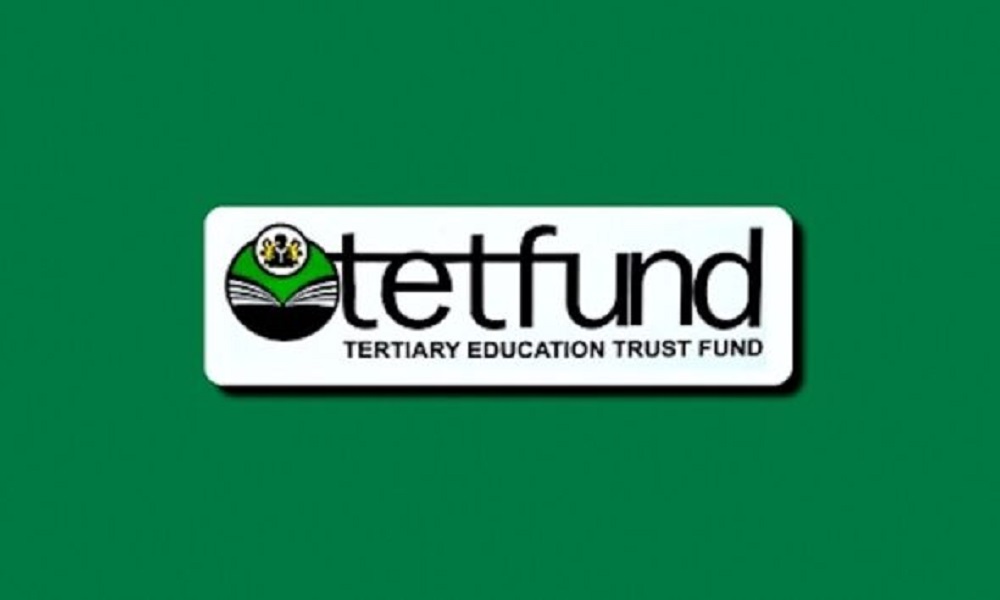News
E-transfer levy: Consumers kick as POS operators raise charges

Operators of Point-of-Sale terminals raised their charges on Monday in line with the implementation of the Electronic Money Transfer Levy of N50 by the Federal Inland Revenue Services charged on any electronic inflow of N10,000 and above.
Several fintech platforms on Sunday notified their customers that they would start the collection of N50 as an Electronic Money Transfer Levy in compliance with the Federal Government Stamp Duty Act, which would be remitted to Federal Inland Revenue Services.
Moniepoint in a mail said, “Please be informed that in compliance with the Federal Government Stamp Duty Act, you would be charged an Electronic Money Transfer Levy of N50 by the Federal Inland Revenue Services on any electronic inflow of N10,000 and above” adding that “FIRS charges you N50 for inflow received in your Moniepoint personal banking account. Moniepoint does not benefit from this but receives and remits this sum to FIRS.”
It clarified that the levy applies to all electronic inflows of N10,000 or more except when the electronic inflow is between Moniepoint accounts owned by the same user.
The Electronic Money Transfer Levy is an N50 charge on mobile money, internet banking and other electronic inflows of N10,000 or more.
PalmPay told its “Dear Valued Customer, In accordance with the Electronic Money Transfer Levy regulation of 2022, a N50 levy will be charged on transfers of N10,000 or more paid into your PalmPay account from November 30th, 2024 as mandated by the Federal Inland Revenue.
“Please note that PalmPay does not benefit from this levy, it is remitted directly to the federal government. PalmPay continues to offer unlimited free transfers to any bank account. We are dedicated to providing affordable and accessible financial services to our valued customers.”
OPay sent a terse message to its customers on the app saying, “Dear customer, in line with the FIRS, the EMTL applies starting December 1st, 2024.”
The Electronic Money Transfer Levy was first introduced through the Finance Act 2020, which expanded the scope of dutiable instruments under the Stamp Duties Act to include electronic transactions.
The regulations guide the imposition, administration, collection, and remittance of the Electronic Money Transfer Levy which was introduced by the Finance Act, 2020. Key provisions include A one-time levy of N50 on the recipient of any electronic receipts or transfers of N10,000 or more.
A POS operator in the Arepo area of Ogun State, Kazeem Adewale, lamented in Yoruba that he had been explaining to customers the reason for the hike in charges since yesterday and was barely coping with annoyed customers.
“I have been explaining and it is tiring. Customers think you want to cheat them but all of us here have had to increase our charges because of this new levy,” he groaned.
A POS operator in Yaba in Ondo town, Mrs Helen Faniran, said, “I haven’t started collecting the charge but I have heard a few of my colleagues saying they would start. One of them said instead of charging N300 for N10,000, she was going to start charging N400.”
Asked why they were charging N300 for N10,000 in the first place, Faniran said “Cash is scarce here. Since morning I have not been able to do any business.”
Asked how she sources her cash, she said, “We buy cash from market women and anyone ready to give us. Before the market women used to give us for free but now they sell to us. That has impacted our profit margin. Ordinarily, it would collect N200 for N10,000 but since we are buying and you have to go through a lot of stress to get your cash, you have to add N100 to it. The market women will give you N100,000 for N2,000 and we will do the same amount for N3,000.”
A POS operator at the Agege area of Lagos State said the charges commence tomorrow(Tuesday). In the Ikotun area of Lagos, a customer said that there had been no increase in charges as of Monday.
Another customer, Deborah Attah, said, “They charged me N600 for N20k when it used to be N400. N5,000 is now N150and N10,000 is N300.”
On social media, bank customers also lamented the hike in POS charges.
A user of the social media platform, X, Sam Addai, lamented, “E levy is one of the most obnoxious taxes. How are we being ‘punished’ for choosing digital money transfers over cash transactions?”
Another X user, 6xstem, said, “Electronic Transfer levy is criminal! Electronic Transfer levy is robbery in broad daylight. Stealing from the citizens indirectly is insane!”
Seige (@OjoPraise), adding his voice said, “My issue with the POS money vendors is they will add more charges when you want to transact anything because of this levy. Imagine you want to withdraw N1,000 and they will say 200 per N1,000. After all, nobody is going to protest or do anything. We are broken!”
Adding a crying emoji to his comments, @chxbueze said, “Government go collect charges, POS too go collect.”
Muritala Mujeed said, “Ohhhh This is the reason why POS users started N100 extra charges on transactions above N10,000. I wanted to pay for fuel this morning and I was shocked by the guy’s ‘shalaye’ (explanation). Toor, it is well o.”
Collins said, “I deposited N12,000 from POS to my account, they still charged me N50 and I paid POS charges. Please what’s going on?”
The initial implementation of the levy in September elicited reactions from Nigerians especially on social media who accused the government of continuously imposing taxes on citizens without notable progress or accountability for how the monies are spent. It was suspended and implementation was moved to December 1st.
As of the time of the initial implementation, economists had warned that the move would ground the fintech space.
Former Chief Economist at Zenith Bank, Marcel Okeke, told The PUNCH that the move was ill-timed and could have far-reaching negative consequences for the economy, particularly in the fintech sector, which has been growing rapidly in recent years.
Okeke argued, “The Federal Government’s move to impose a N50 levy on fintech transactions is driven by a desire to boost revenue. However, this approach may have unforeseen consequences. By targeting digital transactions, the government may inadvertently discourage people from using these services, leading to a demonetisation of the economy,” Okeke said.
Another economist, Alias Aliyu, described the government’s action as a “desperate move” to increase revenue, arguing that the current economic conditions do not justify such a measure.
Credit: PUNCH
News
TETFUND threatens to cut financial support to non-performing institutions

The Tertiary Education Trust Fund (TETFUND) has threatened to cut financial support to beneficiary tertiary institutions that fail to meet performance benchmarks or mismanage allocated funds.
The agency said it would de-list such tertiary institutions from its support programmes.
Executive Secretary of TETFUND, Sonny Echono gave the warning at a one-day strategic engagement with heads of institutions, bursars, and heads of procurement of the agency’s beneficiary institutions in Abuja on Monday.
Echono said the policy was not meant to punish, but rather safeguard the credibility and impact of TETFUND interventions.
He said: “Let me be clear, institutions that consistently fail to access, utilise or retire funds appropriately, or that fall short of enrollment and academic performance thresholds, risk being delisted as TETFUND beneficiary institutions.”
He also disclosed the intention of TETFUND to ensure that its resources were directed towards institutions that were committed to high standards of governance, transparency, and accountability.
Echono said the strategic engagement was targeted at addressing recurring challenges in Nigeria’s tertiary education sector, improving project execution, and enhancing the quality of education.
A key focus, he said, was the Academic Staff Training and Development (AST&D) intervention.
He said due to rising costs and incidents of scholars absconding, the foreign component of the TETFUND Scholarship for Academic Staff (TSAS) was suspended as of January 1, 2025 with emphasis now shifted to cost-effective, locally driven training.
Echono said this year’s intervention budget prioritises consolidation, sustainability, and the completion of abandoned projects.
He added: “This engagement is not merely a meeting but a strategic convergence. It is designed to address recurring issues of concern, streamline project implementation, and enhance the overall quality of tertiary education delivery in our nation.
“As we move forward, let us approach today’s discussions with openness, collaboration, and a shared vision to elevate our institutions and the students we serve.
“Together, we can strengthen accountability, drive innovation, and ensure that the legacy of TETFUND remains impactful, equitable and enduring for generations to come.”
Executive Secretary of the National Universities Commission (NUC), Professor Abdullahi Ribadu emphasised the importance of the meeting for evaluating the implementation and impact of TETFUND – supported projects in higher education institutions.
The NUC chief, who was represented by Dr. Joshua Atah appreciated TETFUND’s vital role in improving infrastructure, research, staff development, and academic quality, stating that without its support, public education would struggle to survive.
Prof. Ribadu acknowledged the adaptability of TETFUND’s policies, such as suspending international scholarships to reallocate resources more effectively.
He urged tertiary institutions to be more responsive and ensure that interventions were relevant and efficiently executed.
Ribadu encouraged judicious and timely use of funds and called for open and constructive dialogue during the engagement.
“This calls for greater responsiveness also on the part of the institutions. This responsiveness also includes the areas of the design and implementation of these interventions to ensure that they remain relevant, impactful, and aligned with the future of education in Nigeria.
“It’s also important that we judiciously utilise these resources, and not just judicious utilisation but also in a timely manner so that we don’t lose the fund,” he said.
News
Again, Boko Haram reportedly attack military base in Borno

Suspected Boko Haram terrorists have attacked a Nigerian Army base in Marte , the headquarters of Marte Local Government Area of Borno State with casualties
The terrorists attacked the 153 Task Force Battalion’s Forward Operation Base (FOab) at around 3am on Monday, according to the locals and security sources.
They said the terrorists also burnt armoured tanks and seized arms and ammunition from the base during the attack.
“ISWAP has taken over Marte. An unspecified number of soldiers were killed, some captured, and many others fled towards Dikwa.
“They are currently at the 24 Task Force Brigade in Dikwa,” a source said.
Recent terrorist attacks have targeted several military formations in Borno and Yobe, including Sabon Gari and Buni Yadi, with the latest being the attack on the 153 Task Force Battalion.
Attempts to reach Maj-Gen Markus Kangye, Director of Defence Media Operations, were unsuccessful as he didn’t answer calls or respond to text messages.
News
Taraba Woos Global Investors Ahead of Landmark Economic Summit

…Taravest 2025 to Unlock Opportunities in agric, energy, mining
…as state offers peace, resources, incentives
By Gloria Ikibah
The Federal Government and Government of Taraba State have called on the international community and private sector players to partner with Taraba in unlocking the state’s massive investment potentials across agriculture, energy, mining, and tourism.
This call comes ahead of the Taraba International Investment Summit (Taravest), with the theme: “Unlocking Taraba’s Investment Potentials, Advancing Agriculture, Energy, Mining and Industrialization for sustainable development “, scheduled for May 21, 2025, in Jalingo, Taraba state.
Speaking at the diplomatic preparatory briefing in Abuja, the Minister of Foreign Affairs, Ambassador Yusuf Maitama Tuggar, who was represented by Ambassador Anderson Madubike commended the initiative, describing it as a platform that aligns with Nigeria’s economic diplomacy agenda.

“I wish to commend His Excellency and indeed the Government of Taraba State for convening this timely summit, particularly at this time when the whole world is in need of creating a travelling investment climate through co-location. There is therefore the need for partnership between governments, private sector players, and civil societies,” the Minister stated.
He emphasised that Taravest represents “a collective pursuit of development and prosperity, not only for Taraba State, but indeed for the whole world.
“They have enormous resources—we’re talking about gold, we’re talking about uranium, and many others, and of course agriculture, fertile land, which you know, food, is the way to go”, he added.
Ambassador Madubike noted that the theme for the summit, themed “Unlocking Taraba’s Investment Potentials: Advancing Agriculture, Energy, Mining, and Industrialization for Sustainable Growth,” is expected to attract both local and international stakeholders.
“Our presence here signifies a commitment to making Taraba a model of investment and sustainable development,” he said.
In his address, the Executive Governor of Taraba State, Dr. Agbu Kefas, expressed gratitude to the Federal Ministry of Foreign Affairs and extended an open invitation to diplomats and investors.
Dr. Agbu highlighted the significance of the summit as the first of its kind since the state was created in 1991, and laid out three clear objectives.
“It is my great honor to welcome you to the Paivota Preparatory Meeting for the Taraba State International Investment Summit, Taravest 2025, in just nine days to come.
“To orient you to Taraba’s untapped potentials and the structure of the summit; to inspire your confidence in our security, infrastructure, and business environment; and to enlist your support in rallying investors, technical partners, and development agencies”, the governor said.
He emphasised Taraba’s strategic strengths, citing five core advantages, this is as he reassured guests about the state’s security readiness.

“Peace and security, over 44,000 km² of fertile land for agriculture, massive hydropower and solar capacity, rich mineral reserves including gold, barite, and lithium, and growing opportunities in tourism and the digital economy.
“I want to assure you that we have coordinated with the state security services, the Nigerian military, the Nigerian police, and our traditional rulers… to guarantee your safety”, he added.
The summit, he explained, will feature B2B and B2G matchmaking, policy dialogues, PPP frameworks, and guided site visits to model farms and mining zones.
“Taravest 2025 is more than a conference. It is a statement of fact that Taraba is open for transformative partnership. I invite you to leverage your good offices to mobilize your government and business communities,so that together we will convert promise into progress and unlock a future of shared prosperity”, Dr. Agbu added.
He also urged embassies to submit the names of participating investors and delegates by May 16, 2025, to ease logistics.
Taravest 2025, which will hold at the Banquet Hall of the Government House in Jalingo, aims to attract capital, expertise, and innovation to transform Taraba into a thriving investment destination and economic powerhouse.
-

 News18 hours ago
News18 hours agoJust in: Wike admits Fubara alongside 2 govs visited him on reconciliatory moves
-

 News21 hours ago
News21 hours agoRivers crisis: Wike’s aide mocks Fubara, advises him to honourably quit since his spirit has left Brick House
-

 News15 hours ago
News15 hours agoGo home to face corruption probe, protesters in London tell Kyari (Photos)
-

 Economy20 hours ago
Economy20 hours agoSEE Black Market Dollar (USD) To Naira (NGN) Exchange Rate Today 12th May 2025
-

 News21 hours ago
News21 hours agoJapa! UK to End Overseas Care Worker Recruitment to Cut Migration
-

 News21 hours ago
News21 hours agoJust in: Chris Piwuna emerges as new ASUU President
-

 News18 hours ago
News18 hours agoAMCON, Others Dragged to Court Over Alleged Undervalued Sale of Ibadan Disco for $62m
-

 News21 hours ago
News21 hours agoUS and China Reach Trade Accord Deal After Geneva Talks


















